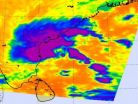(Press-News.org) CHAMPAIGN, Ill. – The lame-duck Congress may be the last chance for the current Democratic majority to slip through legislation legalizing online gambling, a move that could have dire consequences for communities and the economy, a leading national gambling critic warns.
Although much of the talk on Capitol Hill revolves around Bush-era tax cuts and reducing the deficit, University of Illinois business professor John W. Kindt says don't be surprised if a bill legalizing online gambling is floated by outgoing House Democrats under the auspices of revenue generation.
"The Unlawful Internet Gambling Enforcement Act, which increased the sanctions against outlawed online gambling, was passed just prior to the Republican lame-duck session of 2006," said Kindt, a professor of business and legal policy at the U. of I. "Some of the most vocal advocates for the legalization of online gambling don't like the 2006 law, and would like to see it repealed before the Republicans take control of the House in January."
The most influential pro-gambling voice on the Hill is Rep. Barney Frank, the Massachusetts Democrat who chairs the House Financial Service Committee. In the search for untapped revenue streams, Frank and other lame-duck Democrats have been pitching the idea of legalizing online gambling in order to tax what could potentially be tens of billions of dollars in revenue.
"Barney Frank is going to try and run the table on every piece of gambling-related legislation he can push through before he loses his supermajority," said Kindt, who has studied gambling for more than two decades.
Frank, who is not a fan of the Unlawful Internet Gambling Enforcement Act, has been pro-gambling for 20 years, seeing it as a personal freedom issue. The danger in that perspective is that it discounts the social and economic consequences of legalized gambling that everyone will ultimately bear, Kindt says.
"Frank would argue that it's just fun and games, and we'll tax people a little and get a billion dollars out of it," he said. "But it would further destabilize our financial system, so obviously it's not just fun and games."
The social costs include an increase in personal and professional bankruptcies, up anywhere from 18 to 42 percent, as well as an increase in crime by at least 10 percent, Kindt maintains.
"Legalizing online gambling is basically creating a huge social problem where none existed before," Kindt said. "All of these social consequences create huge demands on states and municipalities. In particular, social services and law enforcement really suffer."
Kindt, the senior editor of "The United States International Gambling Report Series," a multi-volume collection that focuses on the societal, business and economic impacts of decriminalizing gambling activities, says gambling also cannibalizes from the consumer economy by taking money out of consumers' pocketbooks.
"In high gambling areas, people buy at least 10 percent less food and 20 percent less clothing, because they're raiding their bank accounts in order to gamble," Kindt said. "The banks are losing liquidity and money while children are losing food and clothing, and their parents are going broke."
One key component of the Unlawful Internet Gambling Enforcement Act was that it increased enforcement mechanisms against illegal online gambling, allowing the Justice Department and FBI to target companies based outside the U.S. who use offshore servers to run the gambling sites.
But any new legislation to legalize online gambling could potentially turn every computer that connects to the Internet – whether it's in a home, workplace or school – into a virtual casino, Kindt says. And with the number of Internet-enabled smart phones exploding in the marketplace since 2006, it also has the potential to turn every BlackBerry and iPhone into a "mobile casino."
"The ability to put a gambling or casino app on a smart phone would be a recipe for economic disaster," Kindt said. "That would truly be a killer app, because the number of personal bankruptcies and people addicted to gambling would just absolutely soar. If we want to reduce our deficit, we need economic recovery, which means we need people buying goods and services. That's not going to happen if people are dumping their money into online gambling apps."
When people buy more durable goods, there's an economic multiplier effect of about a factor of three, Kindt says. Gambling, on the other hand, shrinks the economy at the cost of $5 for every dollar in benefits of tax revenue.
"When people buy consumer goods – cars, refrigerators, computers – that helps the economy, which translates into more jobs," he said. "With gambling, it's like reverse pump priming in that it takes money out of consumers' hands."
INFORMATION:
Kindt recently published "The Gambling Threat to Economies and Financial Systems: Internet Gambling."
Editor's note: To contact John Kindt, call 217-333-6018; e-mail jkindt@illinois.edu.
Legalizing online gambling bad bet for lame-duck Congress
2010-12-08
ELSE PRESS RELEASES FROM THIS DATE:
Diners may be willing to pay more to eat at 'green' restaurants
2010-12-08
COLUMBUS, Ohio – Many U.S. restaurants may be ignoring a desire by American consumers to dine at environmentally friendly restaurants, according to a small exploratory study.
Researchers found that more than 8 out of 10 restaurant patrons surveyed in Columbus said they would be willing to pay more to dine at "green" restaurants. More than 7 out of 10 said it was good for restaurants to protect the environment.
The only problem is that very few restaurants market themselves as "green" or environmentally friendly, said Jay Kandampully, co-author of the study and professor ...
Even with helicopter EMS, hospital transfer can delay treatment for heart attacks
2010-12-08
CINCINNATI—Helicopter emergency medical services can be a life saver for patients needing immediate care. But, according to a University of Cincinnati study, the process of activating them often delays treatment beyond recommended times.
The study, published online ahead of print in Annals of Emergency Medicine, was led by assistant professor Jason McMullan, MD. In a multicenter, retrospective chart review, McMullan found that a majority of STEMI heart attack patients transferred by a hospital-based helicopter emergency medical service (HEMS) in 2007 did not receive treatment ...
Bird call database nests online
2010-12-08
AUDIO:
This is a recording of a Red-tailed hawk made by Pamela Rasmussen in Maryland and now downloadable from the AVoCet database.
Click here for more information.
EAST LANSING, Mich. — A growing online library of bird sounds, photos and information offers a new resource for backyard birders and seasoned ornithologists alike.
The Avian Vocalizations Center at Michigan State University, or AVoCet,offers free downloads of bird sounds from around the world. It also features ...
Air Force flight control improvements
2010-12-08
Flying insects' altitude control mechanisms are the focus of research being conducted in a Caltech laboratory under an Air Force Office of Scientific Research grant that may lead to technology that controls altitude in a variety of aircraft for the Air Force.
"This work investigates sensory-motor feedback mechanisms in the insect brain that could inspire new approaches to flight stabilization and navigation in future insect-sized vehicles for the military," said Dr. Willard Larkin, AFOSR program manager who's supporting the work of lead researcher, Dr. Andrew Straw of ...
Are depressed people too clean?
2010-12-08
In an effort to pinpoint potential triggers leading to inflammatory responses that eventually contribute to depression, researchers are taking a close look at the immune system of people living in today's cleaner modern society.
Rates of depression in younger people have steadily grown to outnumber rates of depression in the older populations and researchers think it may be because of a loss of healthy bacteria.
In an article published in the December issue of Archives of General Psychiatry, Emory neuroscientist Charles Raison, MD, and colleagues say there is mounting ...
Small molecule may disarm enemy of cancer-fighting p53
2010-12-08
ORLANDO — A pioneering clinical trial is testing the effectiveness in leukemia of a small molecule that shuts down MDM2, a protein that can disable the well-known tumor suppressor p53.
Michael Andreeff, M.D., Ph.D., professor of Medicine and chief of Molecular Hematology and Therapy in the Department of Leukemia at The University of Texas MD Anderson Cancer Center, presented preliminary results of this ongoing Phase I study at the 52nd Annual Meeting of the American Society of Hematology. The clinical trial is under way at MD Anderson and five other sites in the United ...
Field of astrobiology more vital than ever
2010-12-08
New Rochelle, NY, December 7, 2010—NASA-funded research has uncovered a new life form on Earth, a microorganism that can not only survive but can thrive and reproduce by metabolizing arsenic, a chemical that is highly toxic for most other earthly organisms. This finding will revolutionize the field of astrobiology—the study of the origins, evolution, distribution, and future of life in the universe. Astrobiology, a peer-reviewed journal from Mary Ann Liebert, Inc.(www.liebertpub.com), has been the defining journal in this exciting area of study for the last decade. Table ...
NASA satellites see heavy rainfall and displaced thunderstorms in System 94B
2010-12-08
System 94B has not been classified as a tropical depression, but NASA satellite data has shown that it is creating heavy rainfall near India's southeastern coast. A second NASA satellite revealed that strong wind shear is continuing to push convection to the northwest of System 94B's center of circulation.
The Tropical Rainfall Measuring Mission (TRMM) satellite viewed an area of thunderstorms associated with System 94B near the east coast of India in the Bay of Bengal on December 7 at 0123 UTC. Data from TRMM's Precipitation Radar (PR) and Microwave Imager (TMI) showed ...
'Greener' climate prediction shows plants slow warming
2010-12-08
GREENBELT, Md. -- A new NASA computer modeling effort has found that additional growth of plants and trees in a world with doubled atmospheric carbon dioxide levels would create a new negative feedback – a cooling effect – in the Earth's climate system that could work to reduce future global warming.
The cooling effect would be -0.3 degrees Celsius (C) (-0.5 Fahrenheit (F)) globally and -0.6 degrees C (-1.1 F) over land, compared to simulations where the feedback was not included, said Lahouari Bounoua, of Goddard Space Flight Center, Greenbelt, Md. Bounoua is lead author ...
Strategy, court specialization driving increase in smart-phone litigation
2010-12-08
CHAMPAIGN, Ill. – The flurry of smart-phone patent suits at the U.S. International Trade Commission (ITC) is being driven by technology companies eager to capitalize on the speed and expertise of the specialized venue, says a University of Illinois patent strategy expert.
Business professor Deepak Somaya says that this current wave of patent litigation is a "clash driven by company strategies."
"Smart phones combine lots of amazing innovation from both computing and mobile telephony, and technology companies are seeing their patents as a potential source of leverage, ...






